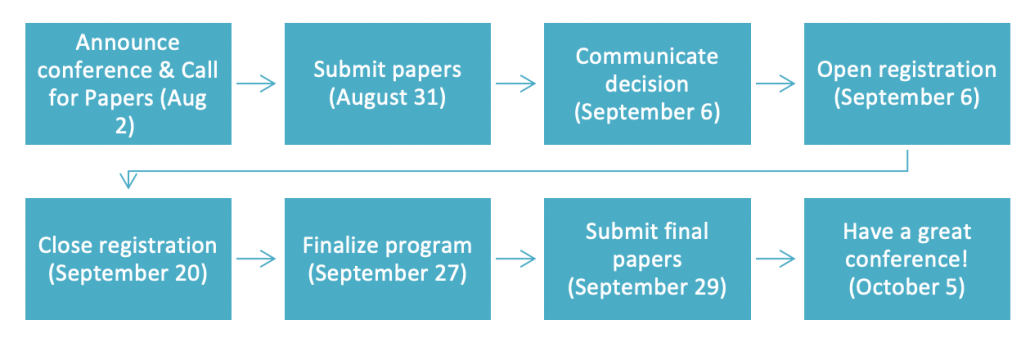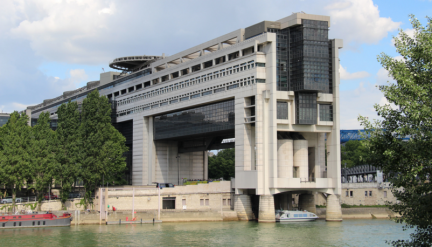
COVID-19 Public Health and Social Measures (PHSMs) Research Outcome Conference
The COVID-19 pandemic is an unprecedented global health crisis that requires international, transdisciplinary collaboration to address its broadscale societal and public health impacts. In comparison to what was possible during previous pandemics, the information age and rapid advances in data-driven research offer policy makers and scientists tools to identify strategies and policy solutions that can effectively mitigate the health effects of COVID-19 while minimizing their potential corresponding social, economic, and environmental impacts. The validity of any such research or analysis rests on the provision of complete and accurate data on COVID-19 policy interventions at all levels of policy making.
In the last year, researchers as well as stakeholders from the public and private sector around the world have been collecting an enormous volume of data on public health and social measures (PHSMs) made in response to COVID-19. Trackers all over the place formed the PHSM Network: the COVID-19 PHSMs Data Coverage Network provides the opportunity for different policy trackers to i) network, exchange and share key experiences and takeaways with the aim of inviting different groups to ii) explore and consider possibilities for collaboration and scientific exchange and iii) reflect on how to use lessons learned from current experiences with data collection to respond to future pandemics.
Goal
The COVID-19 PHSMs Research Outcome Conference provides an important forum for scholars to share and exchange information on research findings based on the datasets that are produced by PHSM Network members. We will cover a diverse spectrum across disciplines from epidemiology over social science to policy and economics and we aim to include voices and views from different backgrounds, both professionally and geographically. The conference will also create space for public health scholars to debate future pandemics and preparedness measures.
Dates
The conference will take place between October 5-7 2021 (7am – 9pm CET). Each day will have 7 slots where one slot is 105 minutes (including a 15 minutes break).
The conference will be held online. In order to assure maximum inclusiveness of our conference, the registration fee to cover the IT infrastructure will be below 5 USD (more information later)
Deadlines
Submit application (August 31)
Decisions communicated to participants (September 6)
Registration Open (September 6)
Registration Closed (September 20)
Program Finalized (September 27)
Submit final papers (September 29)
Have a great conference! (October 5-7)

Apply to participate!
For more Information on the Sections and Formats of participation, please click here.
You can submit your contribution by August 31 via this form.
Paper presentation panels and young scholar paper presentation panels need to be either a working paper or already published article. Either way, the decision will be made based on your paper and not an abstract. You will be asked to submit a final version by September 29.
If you wish to propose a round table or workshop, feel free to submit an abstract and tell us why you would like to be considered for participation.
A participation in workshops and lightning talks do not require a submission. Rather, you will be asked at the moment of registering to the conference (September 6-20).
Registration
You can register for the conference between September 6 and 20. We welcome registrations not only from presenting participants, but invite scholars, policy makers, journalists and other interested attendees. If you wish to be reminded when the registration opens, please RSVP HERE.
Convenors
The CoronaNet Research Project, represented by Cindy Cheng and Luca Messerschmidt, will host the conference in collaboration with the Chair for International Relations (Tim Büthe) at the Hochschule für Politik (Technical University of Munich).
Co-hosting partners are:
- ACAPS: Covid 19 Government Measures Dataset (represented by Angeliki Nika, Alex Howes and Steve Penson)
- Health Intervention Tracking for COVID-19 (HIT-COVID) (represented by Sophia Zweig, Alex Zapf, Qulu Zheng, and Hanmeng Xu)
- International Network for Government Science Advice (INGSA) (represented by Tatjana Buklijas, and Naomi Simon-Kumar)
- Oxford Coronavirus Government Response Tracker (OxCGRT) (represented by Thomas Hale, Anna Petherick and Yuxi Zhang)
- Oxford Supertracker (OxST) (represented by Bernhard Ebbinghaus and Lukas Lehner)
- Project Lockdown (PL) (represented by Jean F. Quéralt)
- Response2covid19 (R2C19) (represented by Simon Porcher)
https://covid19-conference.org/upcoming-events/conference-sections/






Aucun commentaire
Vous devez être connecté pour laisser un commentaire. Connectez-vous.